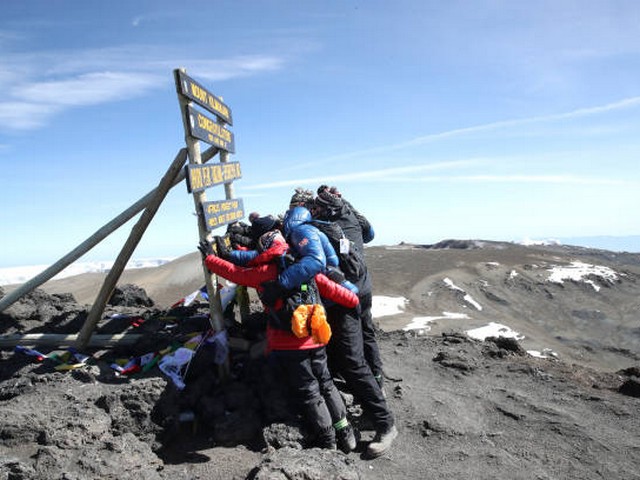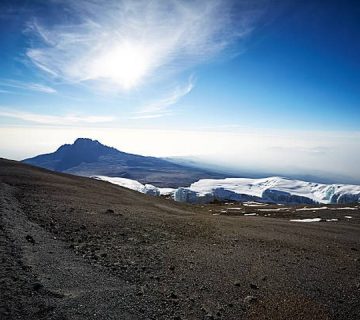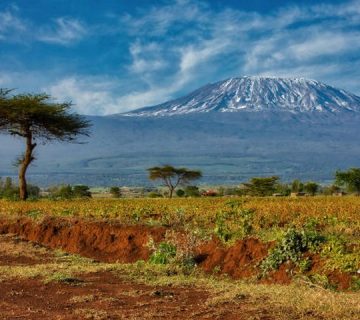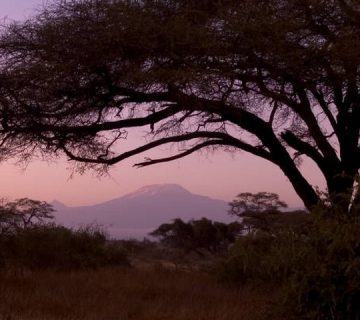Exploring the Rich Local Culture Around Mount Kilimanjaro
Mount Kilimanjaro, the iconic emblem of Africa’s majestic skyline, is not just the tallest peak on the continent but also a vibrant cultural hub. The communities residing in the shadow of this towering giant offer a colorful tapestry of traditions and heritage that are as captivating as the mountain itself. At Kilimanjaro Centre for Trekking and Ecotourism (KCTE), we believe that understanding the local culture enriches your climbing experience, turning a physical journey into a profound personal discovery.
The Heartbeat of Kilimanjaro: Local Communities and Traditions
The Chagga People: Guardians of the Mountain
Nestled on the fertile slopes of Mount Kilimanjaro live the Chagga, one of Tanzania’s largest ethnic groups known for their rich agricultural practices and historical reverence for the mountain. The Chagga have cultivated the mountain’s volcanic soils for centuries, growing crops like bananas, coffee, and maize. Visiting their traditional homesteads offers a unique peek into indigenous agricultural methods and the importance of these crops both economically and culturally.
The Maasai: Nomads of the Plains
The Maasai, with their distinctive red shukas and intricate beadwork, have roamed the lower steppes around Kilimanjaro for ages. Their semi-nomadic lifestyle is a testament to their resilience and deep-rooted pastoralist culture. Exploring the Maasai villages provides insights into their symbiotic relationship with nature, traditional dances, and the pivotal role of cattle in their society.
Pare Tribe: The Forgotten Jewel
Lesser-known but equally fascinating, the Pare tribe inhabits the southeastern slopes of the mountain. The Pare’s intricate irrigation systems and terraced farming are a testament to their innovative spirit and deep understanding of the local terrain. Their traditional houses, made of mud and thatch, stand as symbols of their sustainable living practices and architectural ingenuity.
Cultural Festivals: Celebration under Kilimanjaro’s Shadow
Mwaka Kogwa: Welcoming the New Year
Experience the vibrant Mwaka Kogwa festival, a four-day celebration marking the Shirazi New Year. Witness mock fights, symbolic of leaving behind past grudges; the burning of huts, representing new beginnings; and the intricate rituals that call for rain, health, and prosperity. This festival is a profound way to understand the local beliefs and communal spirit.
Kilimanjaro Marathon: A Race Like No Other
Annually, the Kilimanjaro Marathon gathers local and international runners at the foot of the mountain. This event is not just a test of endurance but also a celebration of communal strength. The energy here is contagious, with local dances, music, and marketplaces lining the route, offering a festive atmosphere that unites athletes and spectators.
Culinary Delights: Taste the Flavors of Kilimanjaro
Sampling local cuisine is a journey through the flavors that define the Kilimanjaro region. From the hearty banana stew known as ‘Mtori’ to the delicious ‘Ugali’, a staple made from maize flour, each dish offers a story of the mountain’s bounty. Don’t miss ‘Chai ya Tangawizi’, a ginger tea that warms you up after a day in the mountain’s embrace.
Art and Handicrafts: The Creative Spirit of Kilimanjaro
The local markets are treasure troves of creativity. Here, artisans sell hand-carved wooden sculptures, beaded jewelry, and woven baskets. Each piece is not just a souvenir but a keepsake that carries the mountain’s spirit and the artisan’s story. Purchasing these handicrafts supports the local economy and helps preserve the cultural heritage.
Responsible Tourism: Engaging with Culture Respectfully
At KCTE, we advocate for responsible tourism. Engaging with local culture means respecting traditions, seeking permission before taking photographs, and dressing modestly. We facilitate interactions that are respectful and enriching for both visitors and locals, ensuring that tourism supports sustainable community development.
Join Us: Climb Kilimanjaro with a Cultural Twist
Climbing Kilimanjaro with Kilimanjaro Centre for Trekking and Ecotourism (KCTE) is more than a physical challenge; it’s a cultural adventure. We integrate cultural tours into our climbing itineraries, allowing you to experience the local hospitality, learn from the community, and leave with memories that go beyond the summit.
Why Choose KCTE?
- Expert Guides: Our guides are not only climbing specialists but also knowledgeable about local customs and history.
- Cultural Immersion: We offer unique cultural experiences that complement your trekking journey.
- Sustainable Practices: We support local economies and adhere to eco-friendly practices to preserve both nature and culture.
FAQs
What is the best time to visit Mount Kilimanjaro for cultural experiences?
The best time is during the dry seasons, from late June to October and from December to early March, when many cultural festivals take place.
How can tourists participate in local festivals?
Tourists are welcome to observe and sometimes participate in cultural festivals. KCTE can arrange visits to coincide with these events, providing a respectful space for engagement.
What should I bring as gifts for local communities?
Educational materials, medical supplies, and sports equipment are appreciated. It is best to coordinate with an organization like KCTE to ensure gifts are culturally appropriate and genuinely useful.
How does KCTE ensure that cultural tours are respectful?
KCTE works closely with local community leaders to ensure that all cultural tours and interactions are conducted with respect for local traditions and norms.
In conclusion, the local culture around Mount Kilimanjaro is as majestic and awe-inspiring as the mountain itself. At KCTE, we believe that understanding and respecting this culture enhances your climbing experience, making it truly unforgettable. Join us to explore not only the heights of Kilimanjaro but also the depths of its cultural landscape. Book your Kilimanjaro climb with us today and step into a world of adventure, culture, and unforgettable memories!
Reach out to Kilimanjaro Centre for Trekking and Ecotourism (KCTE) to start planning your journey to the roof of Africa, where adventures and cultural riches await you at every turn.




